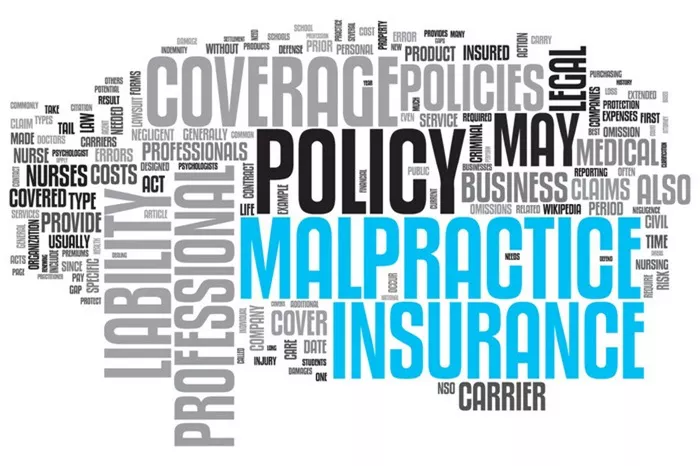In today’s ever-evolving healthcare landscape, psychologists face numerous risks related to their professional practice. Liability insurance is a critical safeguard that helps protect psychologists from financial losses arising from legal claims related to their professional activities. This article provides a comprehensive overview of the best liability insurance options for psychologists, detailing various types of coverage, evaluating leading providers, and offering practical advice for selecting the most suitable policy. Understanding these aspects is essential for ensuring that you are adequately protected against potential legal and financial risks.
Understanding Liability Insurance for Psychologists
Liability insurance is designed to provide protection against the financial implications of legal claims arising from professional activities. For psychologists, this type of insurance is particularly critical as it covers a range of potential issues including professional errors, negligence, and other liabilities specific to their practice. The significance of having liability insurance lies in its ability to cover:
Professional Errors: Coverage for claims alleging mistakes or errors in professional judgment that result in harm to clients.
Negligence Claims: Protection against allegations that a psychologist failed to meet the professional standard of care, leading to patient harm.
Legal Defense Costs: Financial support for the costs associated with defending against legal claims, including attorney fees and court expenses.
Settlement or Judgment Costs: Coverage for any settlements or judgments awarded against the psychologist in the event of a claim.
Having adequate liability insurance is essential for protecting yourself from significant financial losses and potential damage to your professional reputation.
Types of Liability Insurance for Psychologists
Liability insurance for psychologists comes in several forms, each designed to address different aspects of professional risk. Understanding the various types can help you select the coverage that best meets your specific needs.
Professional Liability Insurance
Professional liability insurance, also known as malpractice insurance, is fundamental for psychologists. It provides protection against claims related to professional conduct, including:
Negligence Claims: Insurance coverage for claims alleging that a psychologist’s actions or omissions resulted in patient harm.
Errors and Omissions: Protection for mistakes or failures in providing professional services that are deemed inadequate.
Legal Defense Costs: Coverage for expenses related to legal defense, including attorney fees and other associated costs.
Settlement Costs: Financial support for settlements or judgments that may be awarded against the psychologist in the event of a legal claim.
This insurance is tailored specifically to the risks associated with professional psychological practice and is essential for mitigating potential legal and financial consequences.
General Liability Insurance
While professional liability insurance covers professional conduct, general liability insurance addresses non-professional risks. This type of insurance is useful for covering:
Property Damage: Costs related to damage caused to a client’s property while on your premises.
Bodily Injury: Coverage for injuries sustained by clients or visitors while at your practice location.
Personal Injury Claims: Protection against claims related to advertising or other non-professional activities that might lead to lawsuits.
Although general liability insurance does not replace professional liability insurance, it offers additional protection by covering a broader range of risks associated with running a practice.
Cyber Liability Insurance
With the increasing reliance on digital records and technology in psychological practice, cyber liability insurance has become increasingly important. This insurance is designed to cover:
Data Breaches: Costs associated with unauthorized access to or theft of patient data.
Cyberattacks: Protection against disruptions or damages caused by cyberattacks or other digital threats.
Data Loss: Coverage for expenses related to data recovery and notification to affected individuals in the event of a data breach.
Cyber liability insurance is particularly relevant for psychologists who store or process sensitive patient information electronically, helping to mitigate risks associated with data security and privacy.
Choosing the Right Liability Insurance Provider
Selecting the right insurance provider is a critical step in ensuring you have the appropriate coverage for your needs. When evaluating potential providers, consider the following factors:
Reputation and Experience
Industry Experience: Opt for insurance providers with extensive experience in offering coverage to psychologists and other mental health professionals.
Client Reviews: Investigate reviews and testimonials from other psychologists to gauge the provider’s reputation and service quality.
Professional Associations: Providers affiliated with reputable professional organizations often offer specialized coverage and additional benefits.
Coverage Options
Comprehensive Coverage: Ensure that the provider offers a range of coverage options, including professional, general, and cyber liability insurance.
Customization: Look for policies that can be tailored to fit your specific practice needs and professional risks.
Cost and Premiums
Comparative Costs: Compare premiums from different providers, but also consider the extent of coverage and additional benefits included in each policy.
Value for Money: Evaluate whether a higher premium provides better coverage and enhanced support services.
Customer Support and Claims Process
Support Availability: Assess the quality of customer support provided by the insurer, including their responsiveness and availability.
Claims Handling: Review the insurer’s claims process to ensure it is efficient and effective, providing prompt assistance when needed.
See Also: What Is Liability Insurance for Nurses
Key Considerations When Selecting Liability Insurance
When selecting liability insurance, consider the following key factors to ensure that you choose the most appropriate policy for your needs:
Coverage Limits
Maximum Payout: Understand the maximum amount the insurer will pay for a claim and ensure it is sufficient to cover potential risks.
Adequate Limits: Ensure that the coverage limits align with your practice’s potential exposure and risk profile.
Exclusions and Restrictions
Policy Exclusions: Review the policy for any exclusions or limitations that may affect your coverage. Common exclusions might include certain types of claims or professional activities.
Coverage Alignment: Ensure the policy aligns with the specific risks and activities associated with your practice.
Policy Terms and Conditions
Duration of Coverage: Verify the duration of coverage and renewal terms to avoid any gaps in protection.
Requirements: Understand any requirements for maintaining coverage, such as continuing education or practice limitations.
Professional Associations and Recommendations
Association Recommendations: Professional organizations often provide recommendations or lists of preferred insurance providers.
Group Discounts: Joining a professional association can offer access to discounted rates and specialized coverage options.
Top Liability Insurance Providers for Psychologists
Several insurance providers are renowned for offering comprehensive liability insurance tailored to psychologists. Here are some top choices to consider:
HPSO (Healthcare Providers Service Organization)
Specialized Coverage: Offers extensive coverage options designed specifically for healthcare professionals, including psychologists.
Reputation: Known for its strong reputation and commitment to the mental health community.
Customer Support: Provides robust customer support and efficient claims handling.
The Trust (Professional Liability Insurance Trust)
Targeted Coverage: Offers liability insurance specifically tailored to psychologists and other mental health professionals.
Comprehensive Policies: Provides broad coverage options that address the unique risks associated with psychological practice.
Professional Network: Benefits from a network of professionals and industry experts.
CNA Insurance
Customizable Policies: Known for offering customizable professional liability insurance policies.
Experience: Extensive experience working with mental health professionals, including psychologists.
Coverage Options: Provides a range of coverage options, including professional, general, and cyber liability insurance.
Lockton Affinity
Specialized Focus: Provides professional liability insurance with a focus on mental health professionals.
Tailored Coverage: Offers policies designed to provide comprehensive protection for psychologists.
Client Service: Known for its client-focused approach and efficient claims handling process.
Conclusion
Selecting the best liability insurance for psychologists involves a detailed evaluation of coverage options, insurance providers, and key considerations such as cost and customer support. By understanding the various types of liability insurance available and assessing providers based on their reputation, coverage offerings, and service quality, psychologists can make informed decisions to protect their professional practice. Whether opting for professional liability insurance, general liability insurance, or cyber liability insurance, having the right coverage is essential for safeguarding your career, managing potential risks, and ensuring peace of mind. Comprehensive liability insurance not only shields you from legal and financial challenges but also supports the continued success and integrity of your psychological practice.





















